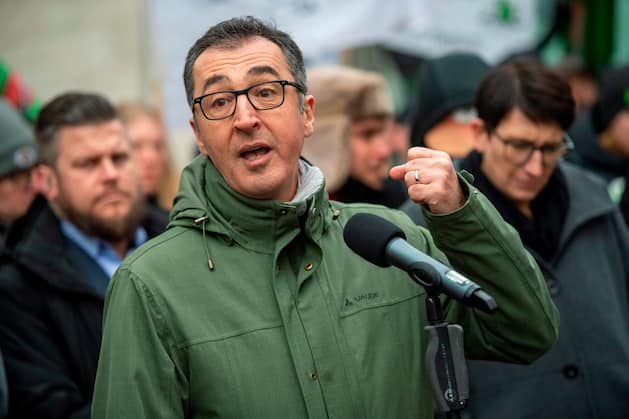The traffic light government has ambitious plans for our food supply. The focus should be on climate protection and animal welfare, as well as healthy nutrition. But if we want to achieve the climate targets we are striving for, we will probably have to dig even deeper into our pockets in the future.
You have to thank the farmers for making sure that the table is set every day. That’s what Federal Agriculture Minister Cem Özdemir (Greens) said on Friday at the start of the Green Week in Berlin. The fair stands for enjoyment, for the joy of eating. But the main topic is also here this year: money.
Under the impression of high inflation, the main topics discussed at the International Green Week are rising prices and the tense situation on the food market. The challenges have never been as great as in 2022 and 2023, said Christian von Boetticher, Chairman of the Federal Association of the German Food Industry, on Wednesday before the opening of the traditional agricultural fair in Berlin. Above all, high energy prices are “slowly forcing the industry to its knees”. The industry expects food prices to continue to rise this year.
Food prices have already increased by 13.4 percent in the past year. The Federal Statistical Office reported an increase of 10.7 percent for vegetables and 3.0 percent for fruit. “2022 was still a mixed calculation with old 2021 prices. The price peaks in 2022 will still be noticeable in 2023 and will have an impact,” said von Boetticher. The problem for the industry is that not all cost increases can be passed on – at certain price thresholds, the products are then simply no longer bought.
And there is another factor that could push food prices further: the traffic light government’s plans. For example, Agriculture Minister Cem Özdemir wants to change conditions in animal husbandry in the future, “certainly fewer animals,” he said in August. In the future, organic farming should be used more. And that could be the price problem.
As agronomist Friedhelm Taube told the “Bild”, the government’s climate targets by 2045 would require both production and consumption
go back
The result of this is further price increases. “Much of what Federal Minister Özdemir plans to do in agriculture means that the supply of raw materials will become scarcer and more expensive,” Boetticher quotes “Bild”. This has a direct impact on the costs of food manufacturers.
Özdemir’s plans could also be problematic for farmers. He drives up the prices with the climate goals, but the income of the farmers in the basement, so the CDU middle class boss in the “image”. She describes his plans in the “Tagesspiegel” as “remote from reality and ideological”. Because that means that Germany has to import more climate-damaging products from abroad again.
And that is in contrast to Özdemir’s idea of facilitating access to healthy, climate-friendly food. The minister wants to reduce VAT on products such as fruit, vegetables and legumes to make them cheaper. The whole thing is a signal for healthy nutrition, which should not fail because of the wallet.
